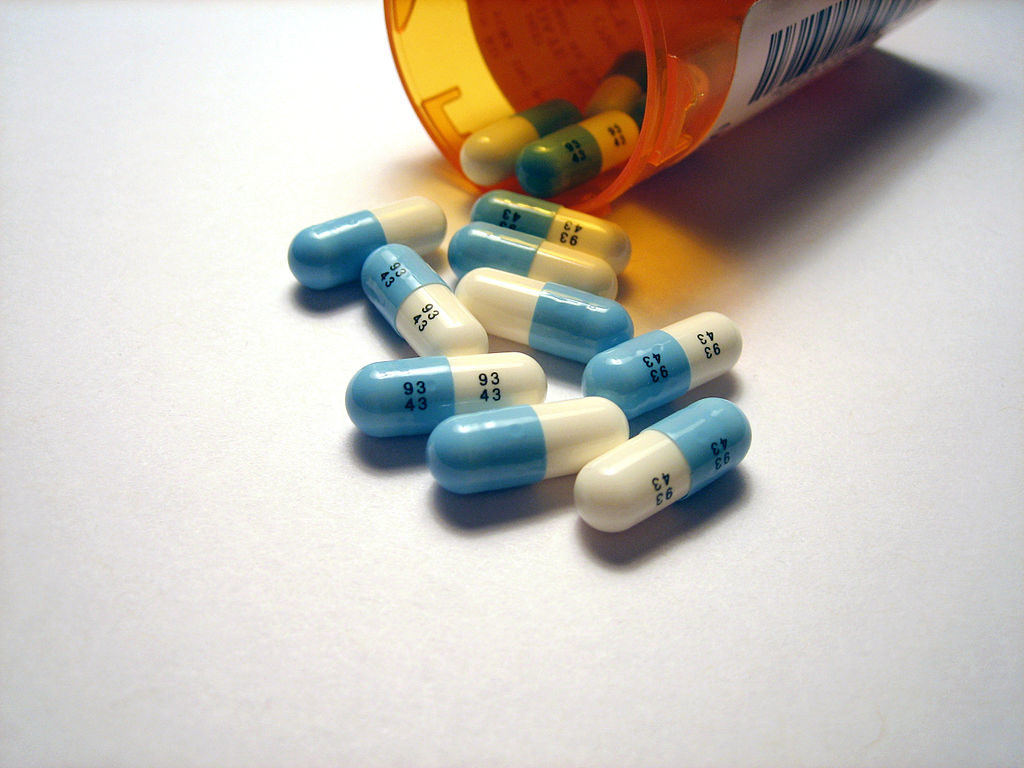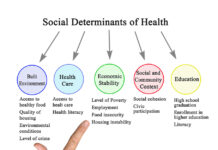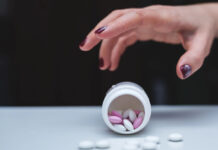A team of Polish researchers published a study following up on Irving Kirsch’s landmark 1998 piece ‘Listening to Prozac but hearing placebo: A meta-analysis of antidepressant medication.’ The team aimed to investigate whether an active placebo response explains the mechanism of action of antidepressants. The researchers found that, indeed, there is evidence that people who expect to see side effects from an antidepressant placebo present more depressive symptoms than those who did not expect side effects; the team believes that participants in clinical trials correctly guessing which study group they’ve been assigned to can partially or wholly explain the efficacy of antidepressants.
“The arguments for the active placebo response hypothesis are based on direct and indirect evidence,” write Oronowicz- Jaśkowiak and Bąbel.
“Direct evidence includes a smaller number of experimental studies in which an active placebo was used which report no significant difference in outcomes of treatment with antidepressants and an active placebo. Moreover, it may be assumed that the reduction in depressive signs and symptoms can be achieved by a variety of pharmacological agents (including medications other than antidepressants), as well as by different nonpharmacological treatment methods. It seems that a common factor of all these methods is patients’ or participants’ conviction of their effectiveness.”

The authors open their piece noting the prevalence of depression in the U.S., as well as the dominant understanding of depression: the biological theory of depression. According to this theory, depression is associated with abnormal central nervous system neurotransmission owing to overly sensitive receptors. Low serotonin levels in depression result in higher levels of serotonin receptors, which in theory are regulated by an antidepressant that inhibits the reuptake of neurotransmitters and accordantly balances receptor levels. Based on this theory, a host of antidepressants were created; this piece aimed to review the active placebo response hypothesis to explain the method of action of antidepressants.
Criticism of the biological theory, write the authors, mainly rests on a critique of the empirical evidence as being insufficient, though this has not affected its popularity. They cite a 2014 study of mice that were unable to produce serotonin to support their case. In this study, mice that were genetically unable to produce serotonin did not exhibit any depressive symptoms, which led authors to believe that serotonin cannot be the main factor explaining depression.
The active placebo response hypothesis, meanwhile, posits that an active placebo response can explain the effect of antidepressants. In an active placebo response, a patient experiences a side effect of a placebo that is identical to that of an antidepressant and uses that information to infer that they are in the antidepressant condition, which in turn affects their expectations of treatment effectiveness. Active placebos do not contain any of the antidepressant medication, but they do produce similar side effects.
“[I]n clinical trials, the awareness of the fact that the participant may receive a placebo instead of a real medication is related to the percentage of patients that respond to treatment,” write the researchers, citing a 2008 study. “The percentage of patients responding to treatment when (1) the subjects are aware of the fact that there is no possibility that they are in a group receiving a pure placebo instead of a medication, and (2) the subjects are aware of the fact that there is a possibility that they are receiving either a medication or a pure placebo was 60.00% and 46.00%, respectively.”
Further, when patients are sure they’ve received an active substance, their depressive symptoms significantly lower, and their neural activity differs from those who are not sure whether they’ve received an antidepressant or placebo. This, the authors suggest, is evidence that conditioning processes and the expectation of efficacious treatment can affect the outcomes of pharmacotherapy, indicating that the biological explanation of depression may have holes to be addressed.
Kirsch’s 1998 study, upon which this meta-analysis was built, revealed a 0.90 correlation between the effect of antidepressant treatment and placebo response in the control group, though also found that the effect of fluoxetine was stronger than a placebo response. This study was criticized, mainly due to the methods of analysis, but other studies have extended this research.
A 2017 study found that antidepressants were more effective than placebo alone, though this fell below clinical significance, a 2004 study found that depending upon data analysis approach, antidepressants may or may not be significantly more effective than placebo, a 2018 study found that type of substance may impact the relationship between placebo and antidepressant, while a 1994 study found a significant correlation between symptom reduction and SSRI side effects. Collectively, these works provide some evidence for the active placebo response hypothesis, though there is a shortage of research on active placebo.
There is indirect evidence to support the active placebo hypothesis as well: a variety of non-antidepressant agents, such as psilocybin, may help improve depressive symptoms, as may a variety of non-pharmacological approaches such as mindfulness meditation, homeopathy, or St. John’s Wort. This evidence is mixed, as homeopathy shows comparable strength to antidepressants in reducing depressive symptoms, but differing cultural expectations or product quality dictated whether an effect was confirmed or not for St. John’s wort. The authors also note that longitudinal differences of antidepressants and placebo increase to the same extent, which flies in the face of a cycle of publications suggesting to the contrary.
The authors additionally call analyses of individual clinical trials into question, citing a 2015 study that re-ran analyses initially conducted by GSK Pharmaceuticals. Le Noury and the team found that the original piece had faulty data interpretations, modifying the endpoint of the study after the trial was completed, which changed the conclusion. It was shown that paroxetine and imipramine were as effective as pure placebo, which led to a significant fine for GSK Pharmaceuticals for false marketing.
The authors conclude by urging researchers to conduct experiments in which researchers manipulate participants’ expectations of side effects when taking antidepressants, as most of the currently available studies do not include an active placebo. The authors also note that it would be valuable to evaluate placebo’s effect on a variety of different depression scales.
“It is necessary to study the frequency of patients discovering their study group assignment,” conclude the researchers. “According to the active placebo response theory, participants of studies guess their study group after having observed some side effects. The assumption is important for the theory; however, empirical studies are scarce.”
****
Oronowicz-Jaśkowiak, W., & Bąbel, P. (2019). Twenty years after ‘Listening to Prozac but hearing placebo.’ Do we hear placebo even louder? Health Psychology Report, 7(1), 1–8. https://doi.org/10.5114/hpr.2019.83383 (Link)















I saw a study of people given a placebo, explicitly told they are taking a placebo and the placebo effect still worked on a majority of the subjects. So you don’t even need the “active” placebo (some kind of noticeable physical effect) to get a response.
Report comment
But if you tell someone that they might be getting a “real drug” or a placebo, the placebo response is stronger if people feel “something happening.” There is, however, a placebo response for both groups, which says a lot about the idea that these “disorders” are purely or primarily biological in nature.
Report comment
Well, no kidding about serotonin. Serotonin isn’t our only happy neurotransmitter/hormone/etc either! All of our neurotransmitters and hormones tend to affect all the others in some way anyway, esp bc the brain is trying to overcompensate for the imbalance in its natural state by the drugs.
From what I’ve read about the placebo effect, it can be mostly halted with naloxone, which leads researchers to believe that the placebo effect is associated with our endorphins, which is a powerful system that affects many other areas of the brain and body thru its action. Not only can it boost our moods and lower pain, but it can induce feelings of thinking things are just fine and peachy and going all right. Not only are endorphins affected, but our reward system including dopamine is activated, which can also reward the self for “believing that he/she is doing better” even if that is just from placebo.
This of course is why all clinical studies test new medications or treatments test vs placebo. If anything can’t outperform our own body’s way of handling these things we are treating, why even release it? Some doctors actually prescribe placebo pills, too.
Even the expectation of getting something that can fix the situation can bring about a placebo-type effect, like when drug addicts call their dealer while dopesick and suddenly they aren’t dopesick anymore as they expect their fix to arrive.
Report comment